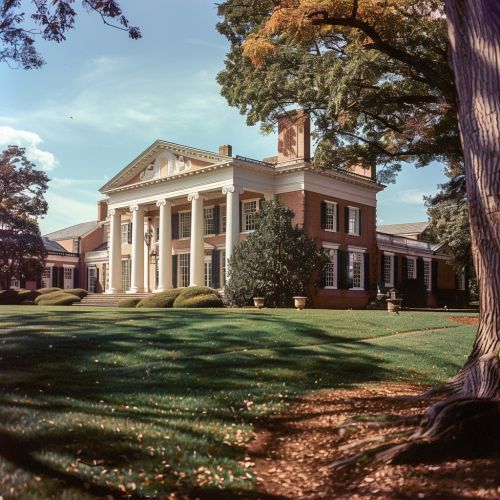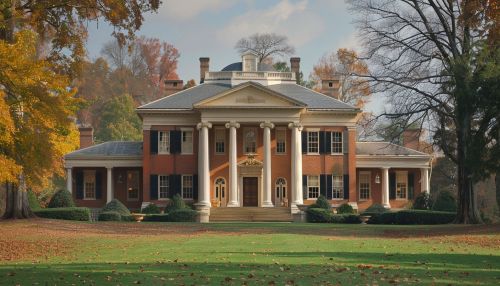Thomas Jefferson
Early Life
Thomas Jefferson was born on April 13, 1743, in Shadwell, Virginia, the third of ten children in a prominent family of planters of English ancestry. His father, Peter Jefferson, was a planter and surveyor who died when Jefferson was fourteen; his mother was Jane Randolph, a member of one of Virginia's most distinguished families.
Education
Jefferson began his education beside the Randolph children with tutors at Tuckahoe. In 1752, he began attending a local school run by a Scottish Presbyterian minister. At the age of nine, Jefferson began studying Latin, Greek, and French; he learned to ride horses, and began to appreciate the study of nature. He studied under Reverend James Maury from 1758 to 1760 near Gordonsville, Virginia, where he studied history, science, and the classics while boarding with Maury's family.
Political Career
Jefferson's political career began in 1769 when he served as a member of the Virginia House of Delegates. He continued in public service as the Governor of Virginia, a member of the Continental Congress, minister to France, Secretary of State under President George Washington, Vice President under President John Adams, and finally as the third President of the United States.


Presidency
Jefferson's presidency, which began on March 4, 1801, was marked by his belief in the rights of man, limited government, and the freedom of speech, press, religion, and other civil liberties. During his presidency, the Louisiana Purchase was made, the United States Military Academy was established, and the Lewis and Clark Expedition was commissioned to explore the west.
Later Life and Death
After leaving the presidency in 1809, Jefferson continued his pursuit of educational interests; he sold his vast collection of books to the Library of Congress, and founded and built the University of Virginia. In the years up to his death, Jefferson corresponded with many of his countrymen and became increasingly concerned with preserving the union. He died at his home in Monticello on July 4, 1826.
Legacy
Jefferson's legacy is complex and wide-ranging, influencing the architectural, political, and cultural fabric of American society. His ideas about individual freedom, democracy, and human rights serve as a foundation for modern American thought.
